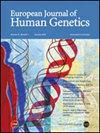新生儿筛查中的基因组测序:平衡同意与发现无症状高危儿童的权利。
IF 4.6
2区 生物学
Q2 BIOCHEMISTRY & MOLECULAR BIOLOGY
引用次数: 0
摘要
在本文中,我们探讨了在将基因组测序纳入现有新生儿血斑筛查计划的背景下,围绕同意权的复杂伦理和法律问题的关键方面。特别是,我们考虑了基因组测序对儿童健康权的潜在影响,以及新生儿筛查中现有的同意做法。我们首先介绍了新生儿筛查项目及其人口健康目标。然后,我们将讨论作为新生儿筛查基础的公共卫生伦理,最后再讨论同意问题。我们接着介绍了目前在新生儿筛查中开展的七个基因组测序研究项目,然后介绍了 "无症状高危儿童被发现的权利",这是在考虑新生儿筛查同意权时可以借鉴的一个有用概念。在新生儿筛查中基因组学的某些用途方面,我们借鉴这一新颖的权利,主张采用 "适当的同意"。我们认为,至少就 "虚拟面板 "而言,适当的同意既能平衡新生儿重要健康状况筛查的持续普遍性,又能承认将复杂的诊断技术引入筛查领域将产生的复杂结果。本文章由计算机程序翻译,如有差异,请以英文原文为准。
Genomic sequencing in newborn screening: balancing consent with the right of the asymptomatic at-risk child to be found
In this paper, we explore key aspects of the complex ethical and legal landscape surrounding consent in the context of incorporating genomic sequencing into existing newborn bloodspot screening programs. In particular, we consider the potential impact of genomic sequencing on the health rights of the child in relation to existing consent practices in newborn screening. We begin with an introduction to newborn screening programs and their population health goals. We then discuss public health ethics as a rationale underpinning newborn screening before turning to consent. We go on to describe seven current research projects on genomic sequencing in newborn screening and then introduce the ‘right of the asymptomatic at-risk child to be found’ as a useful concept to draw on when considering consent to newborn screening. We draw on this novel right to argue for the adoption of “appropriate consent” when it comes to certain uses of genomics in newborn screening. We contend that, for ‘virtual panels’ at least, appropriate consent proportionately balances the ongoing universality of newborn screening for important health conditions with an acknowledgement of the complex outcomes that bringing a complicated diagnostic technology into the screening domain will generate.
求助全文
通过发布文献求助,成功后即可免费获取论文全文。
去求助
来源期刊

European Journal of Human Genetics
生物-生化与分子生物学
CiteScore
9.90
自引率
5.80%
发文量
216
审稿时长
2 months
期刊介绍:
The European Journal of Human Genetics is the official journal of the European Society of Human Genetics, publishing high-quality, original research papers, short reports and reviews in the rapidly expanding field of human genetics and genomics. It covers molecular, clinical and cytogenetics, interfacing between advanced biomedical research and the clinician, and bridging the great diversity of facilities, resources and viewpoints in the genetics community.
Key areas include:
-Monogenic and multifactorial disorders
-Development and malformation
-Hereditary cancer
-Medical Genomics
-Gene mapping and functional studies
-Genotype-phenotype correlations
-Genetic variation and genome diversity
-Statistical and computational genetics
-Bioinformatics
-Advances in diagnostics
-Therapy and prevention
-Animal models
-Genetic services
-Community genetics
 求助内容:
求助内容: 应助结果提醒方式:
应助结果提醒方式:


